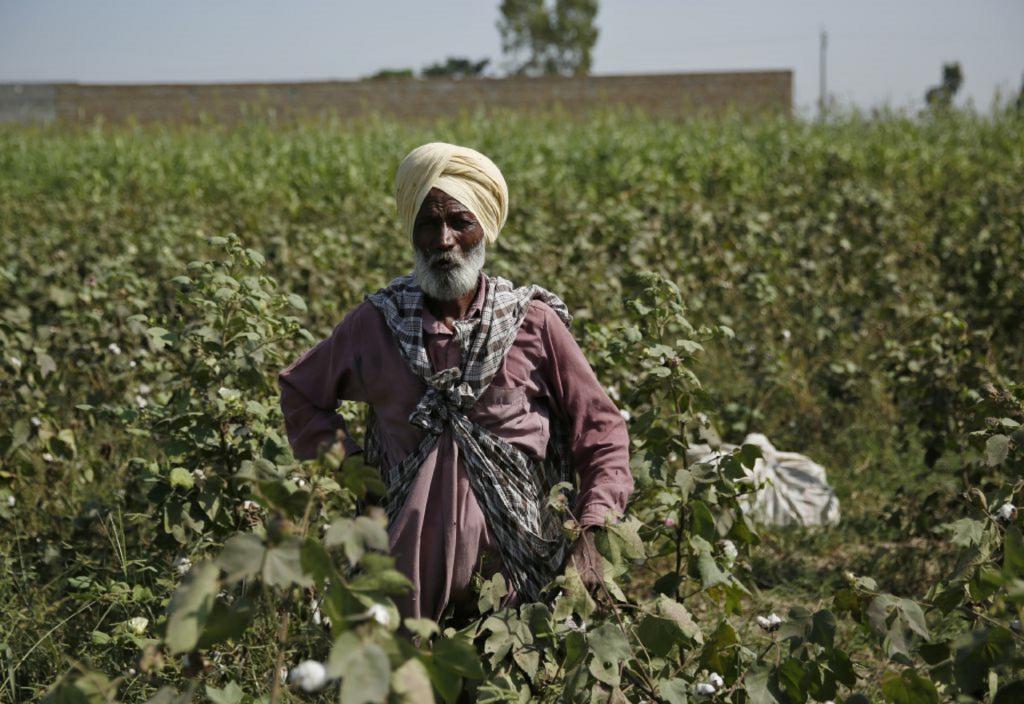Information on the Issue
The Farmers (Empowerment and Protection) Agreement on Price Assurance and Farm Services Act, 2020 was introduced in the Parliament on 17th September 2020 by the Minister of Agriculture and Farmers welfare Shri Narendra Singh Tomar and signed by President Ram Nath Kovind on 27th September 2020. The Act is meant to provide a national framework for agreements concerned with farming and protect farmers in their agreements with companies, retailers, and wholesalers. The Act is also meant to help the farmers with the sale of their produce at a mutually agreed remunerative price in a fair and transparent manner. An important provision in the Act is the promotion and facilitation of direct and online trade of farmers’ produce.
The Act has however, been criticised for its hasty passage in the Parliament along with the legal and technical ambiguities within the law. The procedure followed for passage of the Act has been claimed to be in abrogation of Article 246 (3) of the Constitution where the State has exclusive powers to make laws for subjects mentioned in Entry 14 of list II of the 7th Schedule in relation to agriculture and all related fields. However, the Centre has argued that the subject matter of the Act falls within entry 33 and 34 of the Concurrent list, thus giving it discretion to formulate a law of this nature. The provisions of the Act suggest that in the long run it would be beneficial to farmers by potentially mitigating their exploitation in the trade process. This would be achieved by opening up more avenues for selling farm produce especially through the online platform and bringing in private sector that would boost investments; legal interpretation of the law however, raises some concerns about its possible impact.
Legal and Constitutional Limitations of the Act
Section 5 of the Act that provides for the determination of prices fixed between the farmers and sponsors is ambiguous as there are no specific provisions on determining minimum prices. While there is a mention of following APMC prices as guidelines, there is no compulsion to adhere to them. The interpretation of this Section indicates that with no fixed base price farmers can be exploited by corporations as they could be forced to sell their produce at a lower price with no alternative options.
The definition of ‘sponsors’ provided in Section 2 (o) of the Act is wide enough to include middlemen who ought to be removed from the process in the first place as they tend to procure from farmers at a minimal rate while selling it off to retailers at a higher price profiteering unfairly. Farm produce as defined under Section 2(h) does not include all agricultural produce as mentioned under model APMC Act. This inconsistency would create confusion as the definitions concerning the same produce would be different under the two laws.
What are we doing in this regard?
Elucidating our concerns and recommendations for modifications, we have written a letter to the Union Minister of Agriculture and Farmers Welfare, Secretary of the Ministry of Agriculture and Farmers Welfare, Director (Trade and Digital Agriculture) Ministry of Agriculture and Farmers Welfare, and the Vice Chairman of NITI Aayog.
We have highlighted the ambiguities within the Act that may prove to be disadvantageous for the farmers and have suggested the following specific modifications to do away with the concerns:
- Since there is a concern with APMC provisions vis-a-vis the present Act, Section 5 must substitute ‘may’ with ‘shall’ to mandate the need to determine the prices in line with APMC prices that will serve as a benchmark for price determination.
- It is recommended that a base price be provided in absolute terms, below which no produce shall be sold. Section 5 of the Act should contain an explanation clause bestowing responsibility upon the State government to provide a base price for all harvest crops and fix the same while taking into consideration factors such as weather so that prices are in consonance with prevalent circumstances.
- To protect the interest of marginalised farmers, there should be a well-laid down basis to determine prices of produce so that they are uniform in the same region or under same/similar circumstances. The basis for determining prices should be fixed by respective State governments based on the harvest season and prevalent market conditions.
- The definition of ‘sponsors’ in Section 2(o) should be altered to remove middlemen from the process and specify the type of organisations or individuals under the purview of sponsors giving it a well-defined meaning.
- The definition of ‘farming produce’ Section 2(h) should be aligned with ‘agricultural produce’ as provided in Section 2 of Model AMPC Act to avoid misinterpretation and provide greater consistency.
How can you help?
- You can share our updates regarding the issue, to help us increase outreach for the campaign
- If you can help us identify any other laws/policies that need provisional improvement, write to us.
- You can volunteer to support our advocacy program, as per your skill set.
Write to us at [email protected]
Important Documents:

